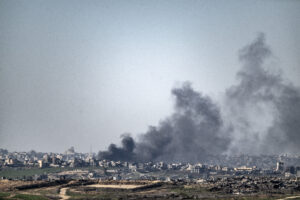EU adopts 5th package of sanctions on Russia
BRUSSELS (AA) – The European Union has adopted its fifth package of sanctions on Russia, banning coal imports and trucks and ships from the country.
“In light of Russia’s continuing war of aggression against Ukraine, and the reported atrocities committed by Russian armed forces in Ukraine, the Council decided today to impose the fifth package of economic and individual sanctions against Russia,” the Council of the European Union representing member states said in a statement.
Under the new decision, it will be banned to purchase, import, or transfer coal and other solid fossil fuels from Russia as of this August.
Russian ships will not be allowed to enter EU ports, except for vessels carrying agricultural and food products, humanitarian aid, and energy.
The EU will also prohibit Russian and Belarusian trucks, with an exemption for vehicles transporting medical and food products, and humanitarian assistance.
The union also extended its export ban on advanced technology such as semiconductors, software, and sensitive machinery, and included transaction bans on four more Russian banks.
As many as 217 individuals and 18 entities were also added to the EU’s sanctions list.
Reports say Russian President Vladimir Putin’s two daughters, Maria Vorontsova and Katerina Tikhonova, are also on the blacklist but the names will only be revealed once the decision is published in the EU Official Journal.
“These latest sanctions were adopted following the atrocities committed by Russian armed forces in Bucha and other places under Russian occupation,” EU foreign policy chief Josep Borrell said.
He added that sanctions aim at stopping “the reckless, inhuman and aggressive behavior of the Russian troops and make clear to the decision-makers in the Kremlin that their illegal aggression comes at a heavy cost.”
The EU has allocated €1 billion ($1.09 billion) in military support, and €500 million ($544 million) in humanitarian aid to Ukrainians, and earlier adopted four packages of sanctions against the military campaign that began on Feb. 24.
The previous measures targeted 785 individuals and 14 entities in total, including Putin, Foreign Minister Sergey Lavrov, oligarchs, and military officers.













